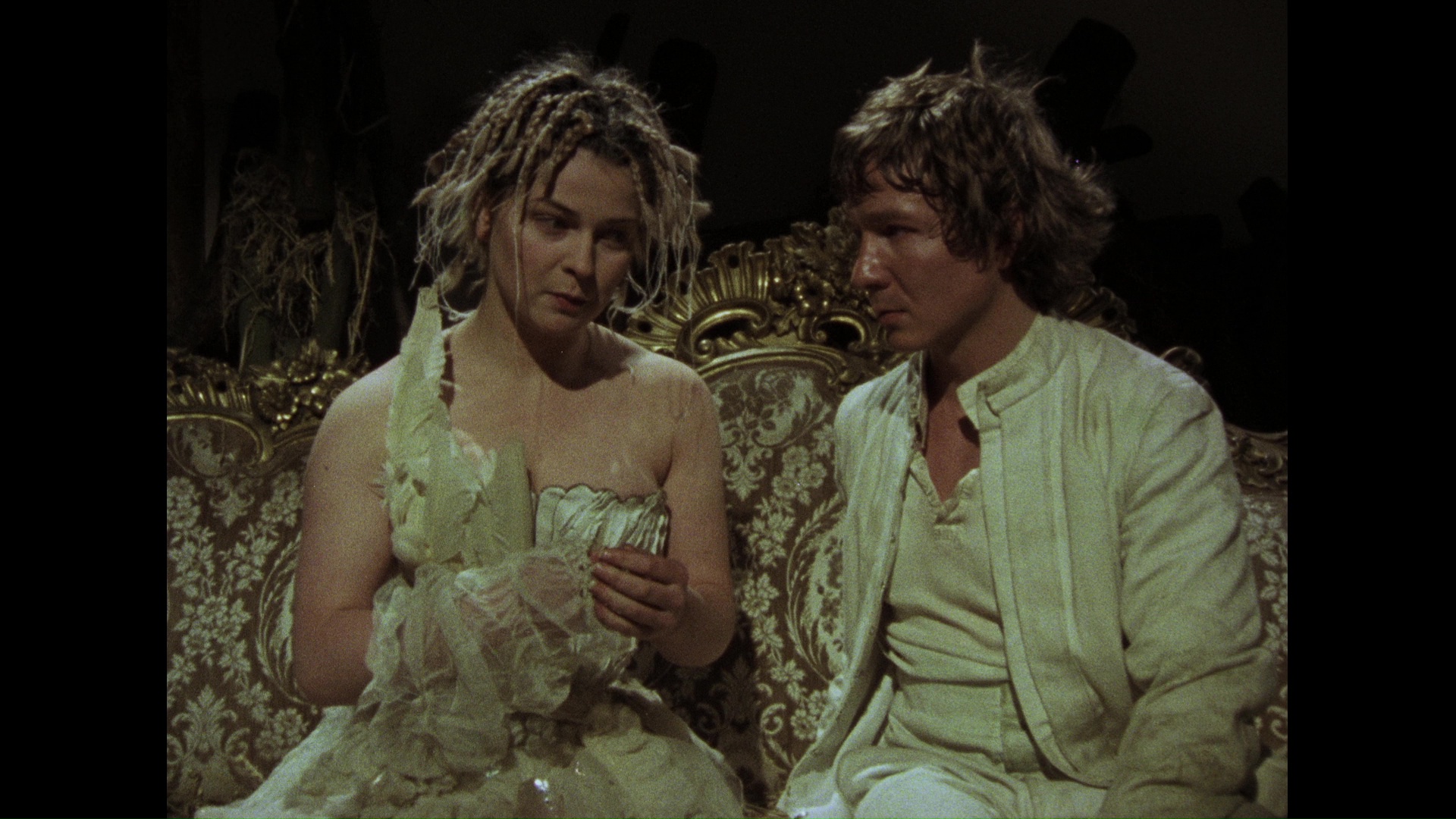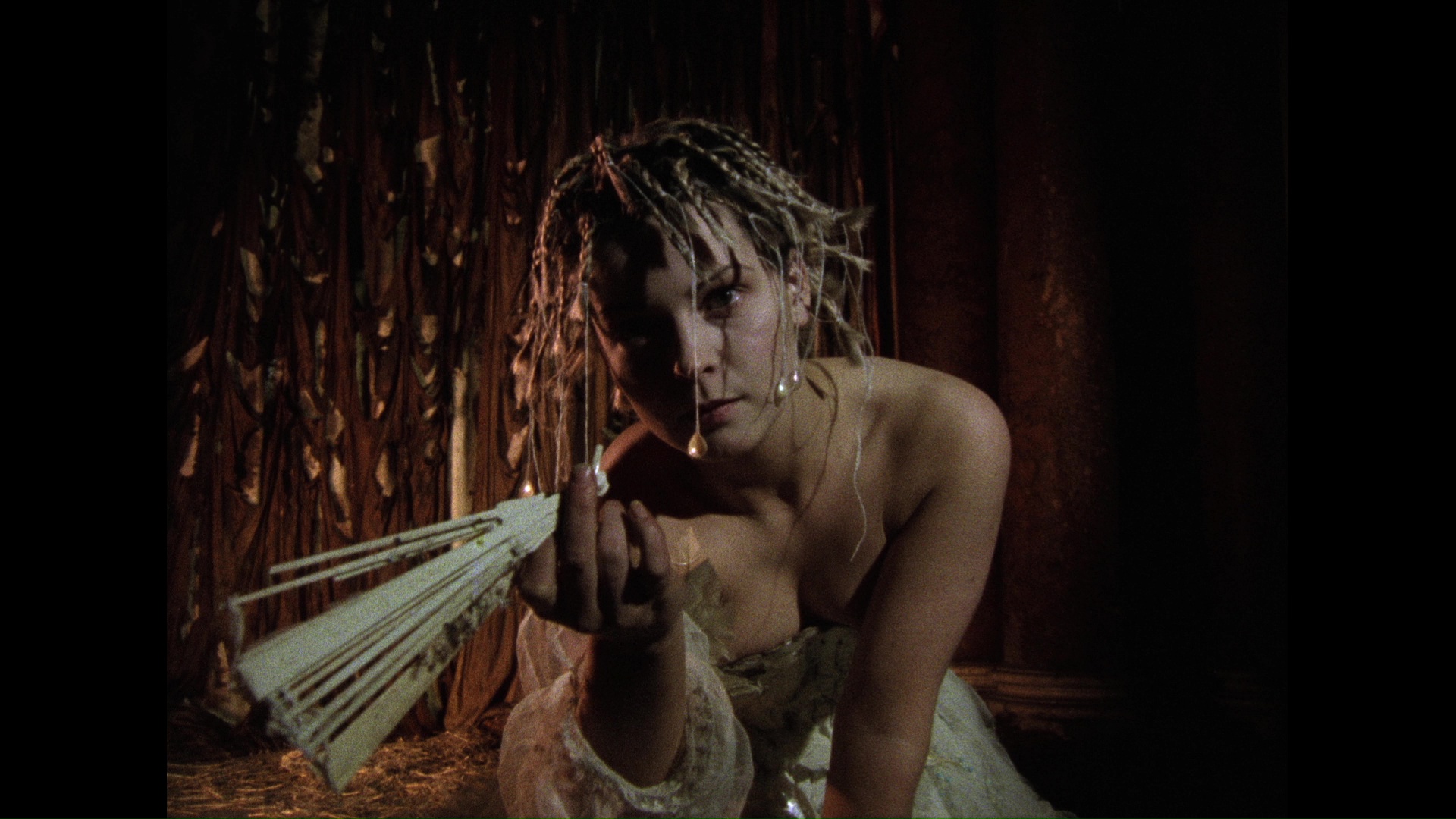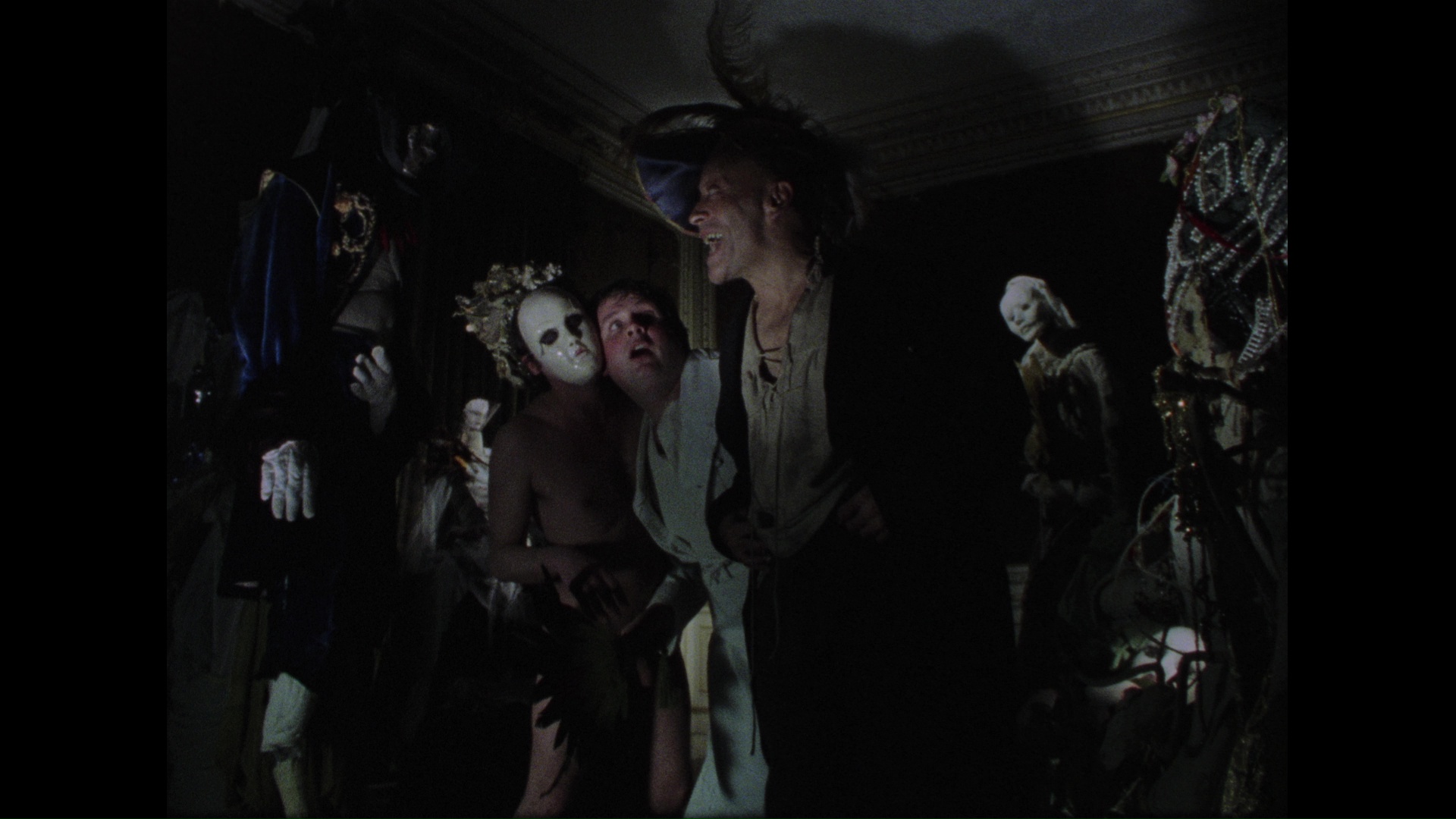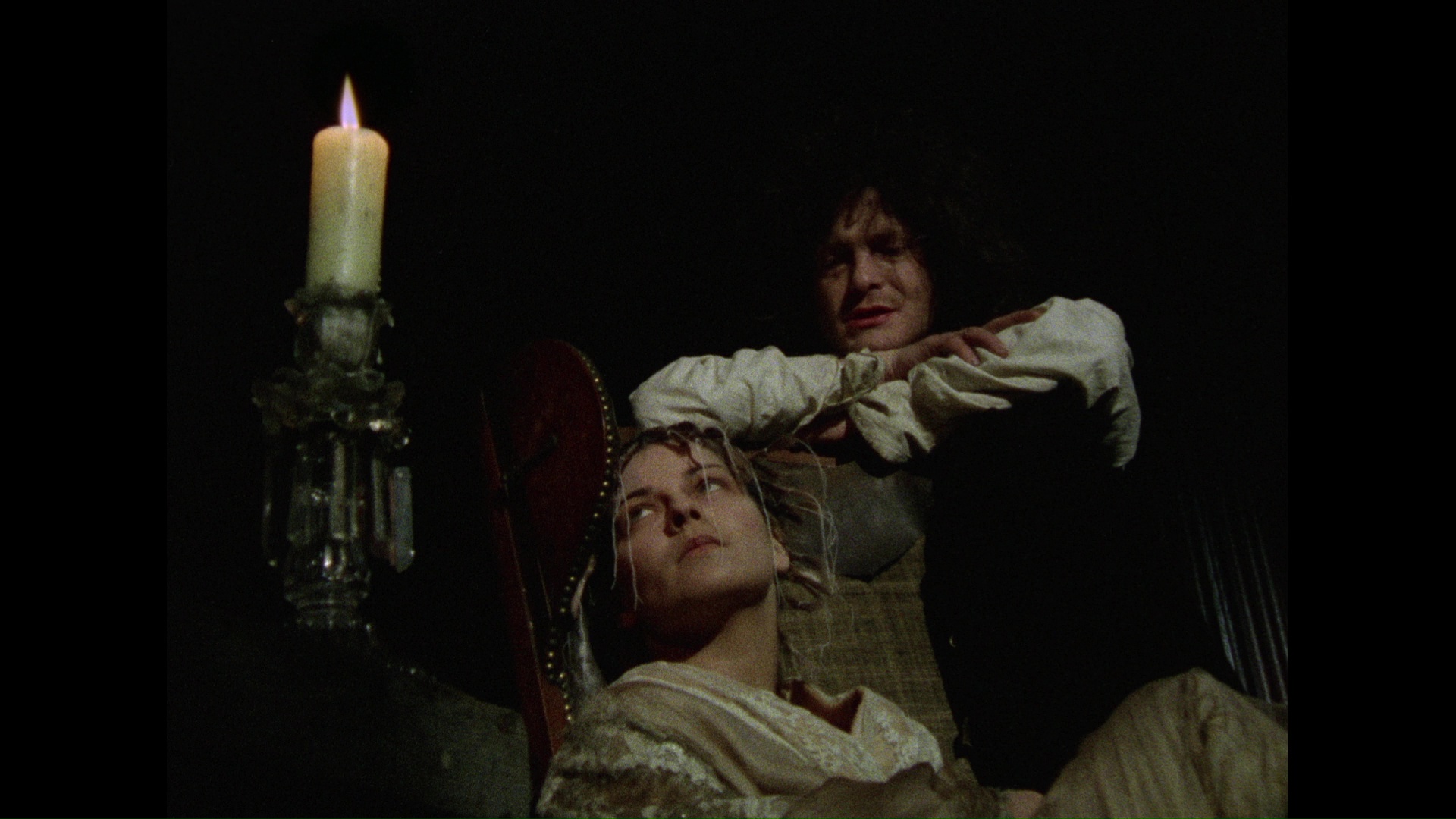
More faithful to its source than you might imagine given that it was shot for little money at Stoneleigh Abbey, The Tempest has many of Jarman's usual visual flourishes but mostly employs them in service to the story. The first half has plentiful exposure of both genders (mainly Willcox and Meyer), deep chiaroscuro lighting, windswept English landscapes, and some genuinely eye-popping costumes, all of which may not be traditionally Shakespearean but still feel oddly organic to the story.
Directed by Derek Jarman
Starring Heathcote Williams, Toyah Wilcox, David Meyer, Jack Birkett, Peter Bull
Kino Lorber (Blu-Ray & DVD) (US RA/R1 HD/NTSC), Second Sight (UK R2 PAL), Umbrella (Australia R0 PAL)
 It's hard to believe, but director Derek Jarman was the first filmmaker to tackle a big screen version of William Shakespeare's last play, The Tempest (at least if you don't count the loose sci-fi version, Forbidden Planet). This challenging fantasy concerns Prospero (real-life magicianWilliams), a reclusive magician stranded on an island with his
It's hard to believe, but director Derek Jarman was the first filmmaker to tackle a big screen version of William Shakespeare's last play, The Tempest (at least if you don't count the loose sci-fi version, Forbidden Planet). This challenging fantasy concerns Prospero (real-life magicianWilliams), a reclusive magician stranded on an island with his  sheltered daughter, Miranda (pop star Wilcox), and a monster, Caliban (Birkett). A sea storm washes ashore Prospero's brother, Alonso (Bull), who had stolen the title of Duke of Milan from Prospero, and Alonso's son, Ferdinand (Meyer, one half of the knife-throwing twins from Octopussy). Of course, Ferdinand and Miranda are immediately smitten, and Prospero must decide at what cost he intends to pursue his revenge against those he perceives as his enemies.
sheltered daughter, Miranda (pop star Wilcox), and a monster, Caliban (Birkett). A sea storm washes ashore Prospero's brother, Alonso (Bull), who had stolen the title of Duke of Milan from Prospero, and Alonso's son, Ferdinand (Meyer, one half of the knife-throwing twins from Octopussy). Of course, Ferdinand and Miranda are immediately smitten, and Prospero must decide at what cost he intends to pursue his revenge against those he perceives as his enemies.
The real centerpiece of the film and its most justifiably celebrated element is the lavish wedding/masque finale, with men dancing in sailor suits and a gold-garbed Elisabeth Welch (the nightclub singer from the terrifying dummy segment of 1945's Dead of Night) singing a heady rendition of "Stormy Weather." Originally the lead role of Prospero was offered to John Gielgud, and a minor controversy brewed years later in 1991 (not long before Jarman's death) when Peter Greenaway enlisted Gielgud to star in Prospero's Books, which features a few visual ideas  originating here: the representation of Caliban's mother Sycorax (whose brief breastfeeding scene is probably the most jarring moment in the film), Ferdinand's "birth" from the waves, and the more sexualized representation of Miranda.
originating here: the representation of Caliban's mother Sycorax (whose brief breastfeeding scene is probably the most jarring moment in the film), Ferdinand's "birth" from the waves, and the more sexualized representation of Miranda.

Released by eclectic distributor World Northal (also known for their kung fu titles) in the United States, The Tempest took a long time to find much of an audience outside of the UK. It remained a VHS mainstay there for decades but didn't reach American video until Kino issued a DVD and VHS in 2000. Every version has been presented open matte at 1.33:1, which is fortunate as Jarman often framed his compositions this way until the 1990s.
The move to Blu-Ray for The Tempest is a welcome improvement, given that transfer technology has improved considerably in the several years since its last telecine pass and the obvious benefits of 1080p. As usual for Kino, there's very minimal digital tweaking here; what you're seeing is about as close to the original celluloid as you'll get on an HD set. The retention of the original aspect ratio again is welcome, and colors really sing (especially during that finale) while the very dark first act is now much easier to make out. There isn't much that could be done to improve the rather muddy mono mix thanks to the original recording process, but this sounds about as good as it likely ever will. The Blu-Ray dispenses with two of the minor extras of the DVD (a UK pressbook transcript and stills gallery) but retains the most important ones: a trio of Jarman short films, all shot in his beloved Super 8 format between 1971 and 1973: "A Journey to Avebury," "Garden of Luxor," and the best of them, the sparkling "Art of Mirrors," which anticipates moments in both Jubilee and The Last of England. Definitely not your average Shakespeare release, this one won't be very useful for high school English teachers but will richly reward those who want to see a bold, individual take on the Bard's bittersweet last work.
Updated review on September 13, 2012.
![]()